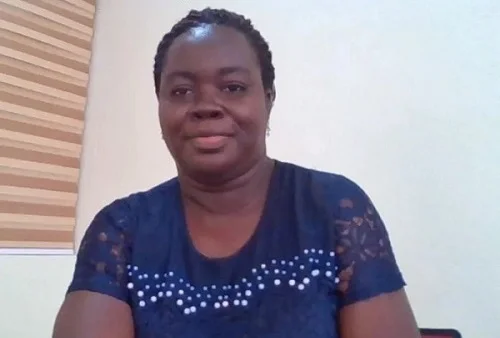Hot!
Bawumia: We’ve digitalised corruption fight

The Akufo-Addo government remains very committed to the fight against corruption and will continue to provide the necessary support and logistics to the crime prevention, detection and prosecution agencies,
The Akufo-Addo government remains very committed to the fight against corruption and will continue to provide the necessary support and logistics to the crime prevention, detection and prosecution agencies, Vice President Bawumia has assured.
Speaking at the 2nd Annual District Auditors’ Conference on Monday, 12 December 2022, Dr Bawumia said since assuming office in 2017, the Akufo-Addo government has made a sustained and aggressive push in the fight against corruption by enacting laws, tightening existing ones, and introducing greater digitalisation in governance and the use of public funds while increasing resources allocated to the fight.
“On assuming office, corruption was prevalent in many areas such as the DVLA, where one had to pay a bribe to ‘goro boys’ in order to get a driver’s licence; same thing at the Passport Office; Customs and other officers were having a field day at the ports; it was difficult renewing ones NHIS, and for some reason, dockets kept getting ‘missing’ at the courts”.
“There was inadequate funding for anti-corruption agencies; the Right to Information Law had not been passed; there was no legal backing for a beneficial assets register and no law on Witness Protection”.
“But since 2017, we have taken a number of far-reaching steps in the fight against corruption, including the implementation of a digitisation agenda to disrupt corruption in the public sector”.
“We have also passed a number of key laws, including the Witness Protection Act, 2018 (Act 959), the Office of the Special Prosecutor Act, 2018 (Act 959), the Right to Information (RTI) Act, 2019 (Act 989), and the Companies Act, 2019, (Act 992). Which provides a framework for enacting a beneficial ownership register,” Dr Bawumia explained.
“To further boost the fight against corruption, deficits in logistics and personnel of law enforcement agencies, especially the Ghana Police Service, and other accountability institutions, are being addressed,” he emphasised.
“For instance, since 2017, Government has increased budgetary allocations to all the accountability institutions of State, including the Parliament of Ghana, the Judiciary, CHRAJ, EOCO, the Office of the Attorney-General and Ministry of Justice, the Auditor General, the Office of the Special Prosecutor and the Ghana Police Service,” Dr Bawumia stated in Accra.
While commending the Auditor General, Mr Johnson Akuamoah Asiedu, the Board of the Audit Service and staff of the Service for the “very good work being done”, Vice President Bawumia reminded the District Auditors and their colleagues across the country that when corrupt activities such as financial improprieties such as misappropriation of funds, payroll fraud, and contract and procurement irregularities take place, the expectation of the taxpayers is that the public officials who commit these financial crimes would be sanctioned according to law.
“One of the functions of the Auditor-General which can combat these financial malpractices is disallowance of any item of expenditure which is contrary to law and surcharge the amount of any expenditure disallowed.
“The public, and, in particular the civil society organisations, have expressed dissatisfaction that the Auditor-General has not performed this critical function effectively. I am informed that the District Auditors will use the greater part of this conference to discuss this very important topical issue of disallowance and surcharge. I expect these discussions to produce outcomes to inform the processes for disallowances and surcharges.
“Nevertheless, let me assure the Auditor-General and Members of the Audit Service Board that in the same spirit of cooperation, The government of Nana Addo Dankwa Akufo-Addo will continue to provide the necessary support to the Audit Service to ensure that it operates independently as the Constitution of the Republic of Ghana mandates.”

Source: www.classfmonline.com
Hot!
Swedru All Blacks back to winning ways, Roshan humble King Faisal

Sekondi Rospak FC made it eight wins in eight successive home games after three second-half goals from John Amoah, Joseph Ntow and Stephen Anthony Kofi. John Amoah opened the scoring in the 55th minute after a barren first half. Joseph Ntow added to the tally in the 56th minute before Stephen Anthony Kofi rounded things up in the 74th minute to give Rospak a 3-0 win over former Premier League side King Faisal.
Elsewhere at Swedru – leaders Swedru All Blacks humbled PAC Academy in an emphatic 2-0 win. Zayat Bubakari scored first for Swedru All Blacks in the 27th minute before Rudolf Junior Nana Kwasi Mensah made it 2-0 in the 34th minute. Swedru All Blacks are top of the table with 36 points – 4 points ahead of second placed Rospak FC.
Meanwhile, Former Premier League side Cape Coast Mysterious Dwarfs recorded their fourth successive home victory after beaten New Edubiase United 2-1 at the Robert Mensah Park. Enoch Odoom struck first for Cape Coast Mysterious Dwarfs in the 19th minute but Steven Asante equalized for New Edubiase United before halftime. After the interval, Godfred Eshun scored from distance in the 65th minute to help Cape Coast Mysterious Dwarfs secure all the points.
Here are the results in Zone Two

Hot!
Cervical Cancer alert: Avoid sex at early age

The Programmes Manager of Non-Communicable Diseases (NCDs) of the Ghana Health Service (GHS), Dr Mary Efua Commeh, has advised young girls to avoid sex at an early age.
This, she explained, will give the cervix the opportunity to mature before they become sexually active.
“You need to delay what we call the first sexual intercourse as much as possible to give the cervix the opportunity to mature before the person becomes sexually active,” she said.
Dr Commeh stated this in an interview with The Spectator in Accra on Tuesday as a part of the Cervical Cancer awareness month.
According to her, cervical cancer was the second leading female cancer in Ghana with a total of about 3,072 cases annually, and out of that, 1,815 deaths are recorded, representing more than 50 per cent.
She indicated that “If young girls are going to be sexually active, then you need to talk to your parents about being vaccinated.”
She explained that vaccinating young girls against human papillomavirus (HPV) has been found to be a very effective way of preventing cervical cancer.
“There are countries that started HPV vaccination years ago and they are not seeing any cervical cancers now because they would have eliminated most of the high-risk HPVs in their women. So if the high-risk HPV is not there, then obviously the results on cervical cancers are going to go down,” she added.
Dr Commmey said the HPV vaccination is recommended for young girls aged nine to 14 years, adding that it had been found to be highly effective, not just for cervical cancers but for other HPV-related cancers, such as anal cancers, cancers of the vagina, genital warts, amongst others.
She further elaborated that the idea is to put up a barrier before the HPV comes in and that once a young female encounters it, she is already protected.
She also mentioned that for cervical cancers, the main cause is called HPV infection, saying generally, all sexually active women acquire HPV at some point in their lives.
However, the Programmes Manager of NCDs at the GHS mentioned that the body has a way of clearing the HPV, explaining that it is a natural mechanism that goes on, unfortunately, there are a few women whose HPV persists.
Moreover, she noted that the numbers for Cervical Cancer tend to be much higher because at times, clients would wait, and try all sorts of medications before they finally report to the health facility saying “we actually lose some women before they get to the hospitals with over 75 per cent of the cases coming in its third and fourth stages.”
Dr Commey, therefore, called for public awareness while ensuring the availability of information for prevention and control.
By Jemima Esinam Kuatsinu







